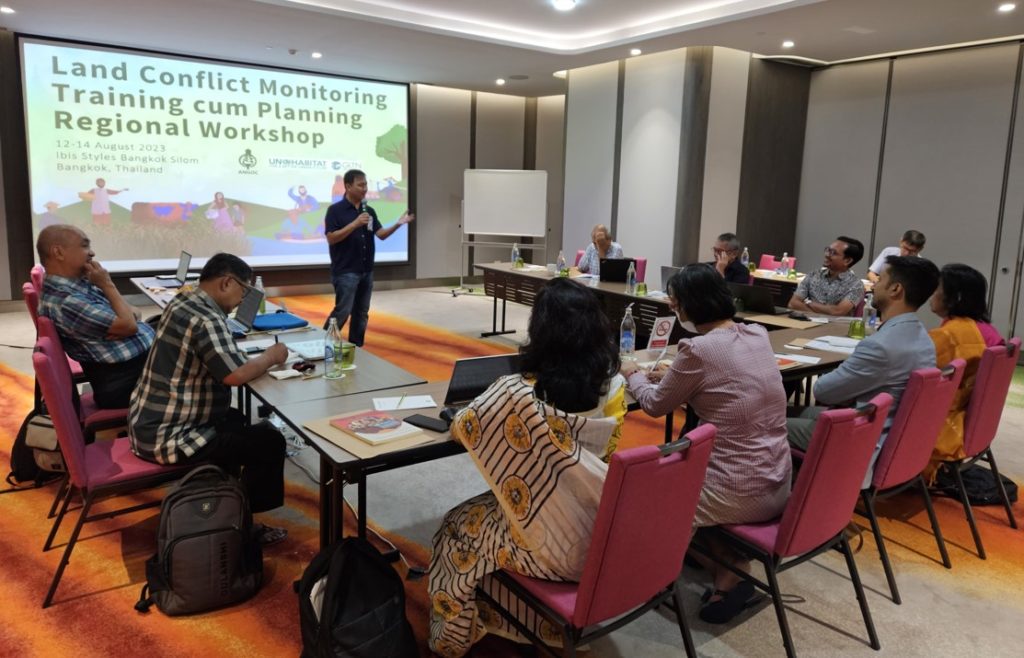Regional training cum planning held to further improve land conflict monitoring methods
Since 2013, the Asian NGO Coalition for Agrarian Reform and Rural Development (ANGOC) and the Land Watch Asia initiative (LWA) have been monitoring land conflict cases in Bangladesh, Cambodia, India, Indonesia, Nepal, and the Philippines – in response to the growing number, increasing coverage, and heightening intensity of conflicts stemming over land issues.

Over the years, the methodologies were enhanced and improved to standardize the monitoring and reporting process, and come up with a more scientific and uniform way to report and analyze land cases, despite coming from diverse countries.
In preparation for the 2023 iteration of the report, ANGOC held a regional training cum planning in Bangkok, Thailand from 12 to 14 August 2023.
During the regional training, the participants were able to update and agree on common land conflict indicators, methodology, and outline for the 2023 Land Conflict Monitoring Report. The group also reviewed and updated the Microsoft Excel based database system in storing the data gathered at the country level used in the 2020 report.
The training participants presented sample land conflict cases from their respective countries, which they used in the exercise on indicators and for inputting on the monitoring excel spreadsheet.

At the end of the training, the participants agreed on the categories and working definitions to be used in the monitoring initiative. They also discussed, updated, tested, finalized the Land Conflict Monitoring Database (excel form), and were able to finalize country and regional outlines, summary tables, and work plans for the 2023 report.
Specifically, they agreed in terms of framework, the monitoring should focus on structural land and resource conflicts – to highlight social issues and to raise questions about public policy and development priorities.
The group agreed to use the case approach, focusing on cases with two or more competing stakeholders (where at least one stakeholder is a community), with an identifiable and locatable contested land or resource, and showing a manifested conflict over control and rights to decision-making over the land.
In terms of data sources and validation, the participants agreed to use three main sources: (1) primary sources, which are information coming from affected families and communities, assisting POs and CSOs, field staff and researchers; (2) secondary sources, stories gathered from news media reports, CSOs, other POs and government data; and, existing databases, which are documented collections of land conflict cases.
In terms of coverage, the monitoring will cover the period 1 January to 31 December 2023, which includes ongoing conflicts and those resolved within 2023, as well as the incidents of human rights violations to individuals and communities happened within the year. The group agreed to focus primarily on conflicts and incidents in rural areas.
This monitoring initiative is supported by the Global Land Tool Network (GLTN) as part of the “Strengthening land governance through promotion of land tools and approaches” contributing in strengthening the formulation and monitoring the implementation of pro-poor land policies and programs through evidence-based advocacy.
#
